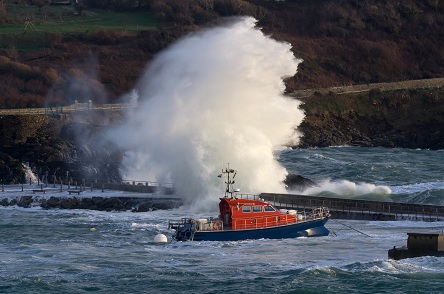Coastal forecasting service sets sail

Related topics
Environment & climate action Innovation Space Belgium Denmark France Italy Poland Spain United Kingdom Environmentdate: 13/01/2015
Project: Fluxes, interactions and environment at ...
acronym: FIELD_AC
See also: CORDIS
Contact: Contact
Accurate prediction of sea conditions in coastal waters requires much more than knowledge of tides and weather. Water quality can be affected by sudden events like storms, flash floods or accidental discharges of sewage or other pollution into the sea.
Authorities need timely warnings to make robust decisions on everything from the closure of beaches in bad weather to the scheduling of coastal construction projects. This requires a level of accuracy and detail of prediction that has not been achievable until now.
FIELD-AC is an EU-funded project that set out to develop powerful new forecasting models for coastal waters.
“The problem we have been trying to solve is how to simulate with enough detail and resolution the motion of water sediment, nutrients, and so on, near the coast so that our predictions can be applied to a given beach, harbour or river mouth,” says project coordinator Agustín Sánchez Arcilla of the Catalonia University of Technology, UPC-BarcelonaTech, in Spain.
The nine partners addressed the problem by combining oceanographic computer models for coastal areas with models for water discharged into the sea from rivers.
Field observations
“We adapted and improved some models available within the scientific community,” says Daniel González Marco, the UPC project manager. “Others were developed specifically during the project.”
The models have been tested against field observations from the Catalan coast, the Gulf of Venice, the German Bight and Liverpool Bay – four coastal areas that are already well monitored by partners in the consortium.
FIELD-AC finished almost two years ago but the results are being commercialised through SIMO, a start-up established by UPC-BarcelonaTech in 2009.
SIMO offers subscribers a range of forecasting services based on the models developed in FIELD-AC. Clients receive forecasts through a web-based interactive viewer, which shows maps of winds, waves and currents in the area along with other information – such as the dispersal pattern of pollutants discharged from a river mouth.
One important group of clients are tourist resorts, which have an economic interest in the condition of coastal areas. Through SIMO, they can be warned of storms and the likely effect on the safety of their beaches and quality of their bathing waters.
“They can plan three to five days in advance the work that they have to do in order to minimise the impact of the event,” says González Marco. “They will know if the quality of the water is good enough for the tourists, and they can better manage the resources of the coastal area.”
Safer shipping
Other clients include companies who are carrying out maintenance or repair work on harbours, breakwaters or coastal defences and require forecasts of wave heights on small scales.
SIMO’s models have been used to assess proposals for offshore wind farms and can also assist with contingency plans for oil spills.
Another application is the planning of navigational routes, guiding vessels on the course likely to be most comfortable for passengers and most economical for the operating companies in view of prevailing sea conditions.
SIMO’s services are also of interest to the organisers of sailing regattas, who wish to forecast sea conditions during their events.
González Marco regards the successful commercialisation of the FIELD-AC models as the most important outcome of the project. “The developments were transferred to a company and this company is providing the service now that the project has ended.”
Sánchez Arcilla adds: “Our software packages are used in daily operations by universities, research institutions, consultants and entrepreneurs all over Europe.”
